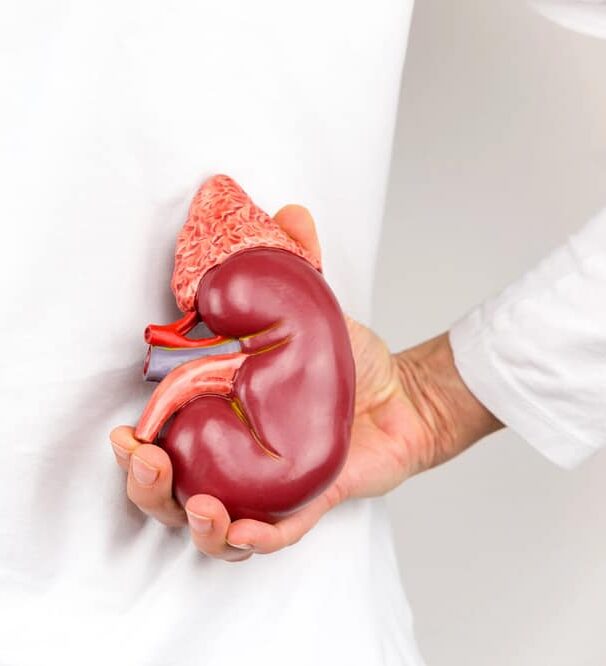When we consider addiction, a medication like gabapentin may not be on our radar. Known also by its brand name Neurontin, gabapentin is a medication typically used to treat epilepsy and neuropathic (nerve) pain. You may be wondering how long gabapentin stays in your system. This can be important for several reasons:
- Medical monitoring – Avoiding potential drug interactions and monitoring for possible side effects for safety.
- Drug testing – Testing for legal conditions or pre-employment screenings is standard.
- Planning for discontinuation – Knowing how long Neurontin stays in the system can help plan the tapering process to minimize withdrawal symptoms.
- Avoiding overdose – When taking other medications or substances that might interact with gabapentin, it’s crucial to know if it’s still in your system.
What Is Gabapentin?
Gabapentin belongs to the class of anticonvulsant drugs, but it also has other uses. These uses are “off-label,” meaning that they aren’t formally FDA-approved for these purposes but have shown promise in treating them:
- Management of restless legs syndrome
- Reduction in hot flashes associated with menopause and other hormonal changes
- Peripheral nerve pain
Gabapentin affects the neurotransmitters in the brain and nervous system, helping to reduce seizures and alleviate nerve-related pain. Due to its potential side effects and interactions with other medications, it’s crucial to use gabapentin only as prescribed by a healthcare provider.
Gabapentin is usually taken orally in the form of capsules, tablets, or oral solutions. The dosage and frequency depend on the treated condition, the patient’s age, kidney function, and response to treatment.
How Long Does Gabapentin Stay in Your System?
Testing for the presence of Gabapentin is usually conducted with urine sampling. Cost-effectiveness and ease of testing are the main drivers for testing this way.
Gabapentin can be detected in different parts of the body for varying lengths of time. Here’s a breakdown:
- Blood – detectable for up to 24 hours after the last dose
- Saliva – detectable for 1-2 days after the last dose
- Urine – detectable for 1-2 days after the last dose
- Hair – detectable for up to 90 days, though hair tests are not standard practice for Neurontin
Factors That Influence How Long Gabapentin Stays in Your System
A few variables are at play when considering how long gabapentin can be detected in your body. A few questions you may ask to help determine the length of time include:
- Are you a fast metabolizer? Individual metabolic rates vary, affecting how quickly MDMA is broken down and cleared from the body.
- How old are you? Metabolic rates generally slow with age, potentially increasing the time gabapentin stays in the system.
- Do you have healthy kidney function? Kidneys filter waste products from the body and produce urine; if this process is impaired, it can slow the body’s elimination of gabapentin.
- How much gabapentin was consumed? Higher doses can take longer to metabolize and eliminate.
- How often have you used gabapentin, and for how long? Regular users may retain this medication in their system longer due to cumulative exposure.
Gabapentin Half-Life
Gabapentin typically has a half-life of about 5 to 7 hours, meaning it takes around 5 to 7 hours for half of the drug to be eliminated from your system. To estimate how long it stays in your system, it generally takes around five half-lives for a drug to be mostly cleared from your body.
Kidney function significantly affects how quickly Neurontin is processed through your body–older adults with impaired renal function process at a much slower rate than younger, healthier individuals.

Is Gabapentin Addictive?
While gabapentin is widely prescribed and generally regarded as a safe medication, it’s important to recognize that the risks for addiction and health concerns are not entirely absent. Gabapentin is often used to treat conditions such as nerve pain, seizures, and anxiety, and while effective, over time it can lead to both physical and psychological dependence.
As tolerance to the drug builds, individuals may need higher doses to achieve the same effects, which can increase the likelihood of negative side effects. These side effects may range from dizziness and fatigue to more severe health concerns, potentially interfering with your overall quality of life. If you or someone you know is struggling with a dependence on gabapentin, it’s crucial to seek support and guidance to prevent long-term complications.
Gabapentin Withdrawal Symptoms
Despite a relatively benign side-effect profile, gabapentin is a medication that requires an intentional taper when stopping use. Tapering a drug or taking smaller doses over time can help alleviate potential withdrawal effects with a more comfortable experience.
Neurontin withdrawal symptoms vary from person to person. The intensity of the symptoms depends on how long the medication was used and the individual’s health.
Common gabapentin withdrawal symptoms include:
- Increased anxiety or depression
- Sleep disturbance
- Nausea and vomiting
- Body temperature regulation issues
- Muscle aches and cramps
- Increased irritability and mood swings
- Headaches
- Dizziness or lightheadedness
- Extreme tiredness or lethargy
- Confusion or difficulty concentrating
- Seizures in rare cases
Do I Need Help For Gabapentin Abuse?
When it comes to addiction, there are a wide variety of substances that can be abused. One lesser-known substance that has been on the rise in recent years is gabapentin. Originally prescribed as an anti-seizure medication, gabapentin has become increasingly popular for its effects on anxiety and pain management.
However, like many prescription drugs, gabapentin can also be addictive and lead to serious consequences if not used properly. That’s why seeking professional help for gabapentin addiction treatment is crucial for those struggling with this type of addiction.
Need Help For Gabapentin Addiction?
Our admissions team is available around the clock to help you or a loved one get the help you need.
Gabapentin Addiction Treatment
At Vogue Recovery Center, we understand the complexities of addiction and offer specialized treatment programs tailored to individual needs. Our comprehensive approach to treating gabapentin addiction involves addressing both physical and psychological aspects of the addiction.
Our medical team will work closely with individuals to develop a safe and effective detox plan, as abruptly stopping gabapentin use can lead to uncomfortable withdrawal symptoms. Once the body is free from the drug, our therapists and counselors will help clients identify underlying issues that may have contributed to their addiction. Through individual and group therapy, we provide tools and support for individuals to cope with cravings and triggers in a healthy way. We also offer holistic therapies such as yoga, meditation, and nutrition counseling to promote overall wellness during recovery.
At Vogue Recovery Center, we believe in helping individuals not only overcome addiction but also create a fulfilling life in sobriety. Our aftercare program provides ongoing support and guidance for long-term success. If you or someone you love is struggling with addiction, reach out to us today. Recovery is possible and we are here to support you every step of the way.
Does Insurance Pay for Gabapentin Detox and Rehab?
Most major insurance providers offer coverage for behavioral health care in a manner similar to medical care. This typically includes meeting a deductible, paying co-insurance, or handling a copay. If you’re uncertain about your drug rehab insurance benefits, our admissions specialists are here to help. Fill out our secure insurance verification form, and we’ll work directly with your insurance provider to clarify your coverage, explain your benefits, and outline any potential out-of-pocket expenses for gabapentin detox and rehab.
Get Help for Gabapentin Addiction
If you or someone you care about is struggling with gabapentin addiction, seeking help from a medical professional is a crucial first step. Effective gabapentin addiction treatment are all designed to ease withdrawal symptoms and manage cravings. With locations in Los Angeles, Las Vegas, and Phoenix, Vogue Recovery Center can help you seek the care most suitable for your needs and circumstances and begin to rebuild a healthy foundation for lasting recovery.
Reach out to a professional today to explore treatment options and access valuable support resources. Remember, you are not alone in this fight, and there is always hope. Take the first step now toward a brighter, healthier future.

Medically Reviewed by Kelsey Jones, MS, LPC









